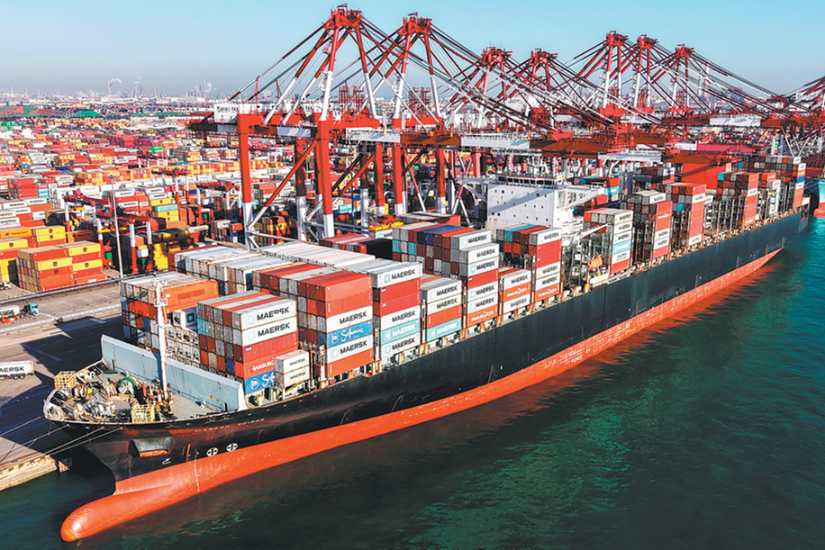Drawing out hemp lines

|
Youngor's HANP store in Beijing. The garment maker plans to open 50 new HANP shops and 200 counters by the end of this year. Zou Zhongpin / China Daily |
Chinese garment giant bets on novel material's 'natural' advantages
Li Rucheng, president of Chinese garment giant Youngor Group, says his company has a secret weapon to ward off competitors.
"Even if I wear my socks for a week, they will not stink," Li says to fellow deputies at the fourth session of the 11th National People's Congress, China's top legislature, in Beijing.
Li is putting forward a proposal at the congress for hemp to be considered a "high-quality and strategic bio-resource" that can benefit thousands of people in various ways.
Many people may know hemp as marijuana, but the hemp socks Li wears have apparently been specially treated to remove toxic substances. Li calls the treated hemp HANP.
"If there is any residue, the tiny amount will be completely harmless to health," says a senior engineer with HANP's research and development center surnamed Yu.
Yu says HANP has many advantages over cotton, silk, wool and fiberflax. As a natural fiber, HANP absorbs moisture, prevents bacteria from reproducing and protects skin from ultraviolet radiation.
The idea of developing the material goes back to as early as 1970s, when soldiers of the People's Liberation Army (PLA) had to be posted in humid caves for days or weeks. The soldiers were often plagued with skin sores. The army had been looking hard for an ideal material to replace cotton until it found hemp.
The use of hemp has a history of more than 5,000 years in China, but it has been mostly weaved into ropes and raincoats as its fiber is too coarse for humans to wear. The key to using it is to soften its fiber while maintaining its superiority over other materials.
Youngor Group, set up in 1979 in Ningbo, Zhejiang province, has developed into a company with 18.2 billion yuan (2 billion euros) of net assets, and is well-known for top quality men's clothing as well as its real estate business.
A meeting between Li and PLA officers in 2003 brought about the concept of HANP. In 2007, a research and development center on hemp was set up with the cooperation of both parties.
The European Industrial Hemp Association accepted Youngor as a member the next year and in 2009, Youngor's first hemp product was born.
Li says they have invested close to 300 million yuan to make it happen.
Youngor's hemp products have extended to underwear, sleeping gowns, shirts, dresses, bed sheets and even soap. Youngor has eight flagship HANP shops in China including those in Beijing, Shanghai and Hangzhou. These has helped to reap a profit of more than 10 million yuan. By the end of 2011, Youngor is set to have 50 new flagship shops and 200 HANP counters.
"Only a few countries such as Germany and Canada have mastered the technique of developing hemp products, but China has an upper hand," says Professor Zhang Jianchun, director with the HANP R&D center.
Youngor has set up a hemp production line, touted as the first of its kind in the world, in Xishuangbanna, Yunnan province, a tropical area in Southwest China.
The quality of its hemp products reaches 60 Nm (number of meters in 1 gram of yarn), close to the 80 Nm index of standard cotton products, and far beyond those of other countries' 20 Nm.
In October 2010, Li brought his hemp products to Milan, Italy as part of an exhibition for "Chinese Culture Year" programs. Representatives of fashion giants like George Armani and CK were reportedly amazed by HANP's quality.
Supporters of hemp say that, unlike cotton and mulberry trees, it can adapt to the environment easily.
The material can survive on barren or alkaline land, as well as thrive on mountain slopes. Hemp does not need any pesticides because can fend off pests naturally.
"Farmers can earn up to 500 yuan per mu (0.067 hectare) by growing hemp and this can help them get out poverty," Yu says.
Youngor plans to plant some 10 million mu of hemp by 2012 and create job opportunities for 1 million farmers.
HANP socks sell for 100 yuan a pair. Its underwear goes for 200 to 300 yuan apiece and its garments can sell for 1,000 yuan.
"The market will grow when more consumers become aware of the benefits of wearing HANP," Yu says.
"Mass production will then help to bring down the price."
Today's Top News
- ROK leader's visit to help boost bilateral ties
- China's new plan, world's new opportunities
- Expert: US actions, words don't match
- China's diplomacy to blaze new trails
- Visits point way to better future for all
- PLA tests joint combat strength for second day
































